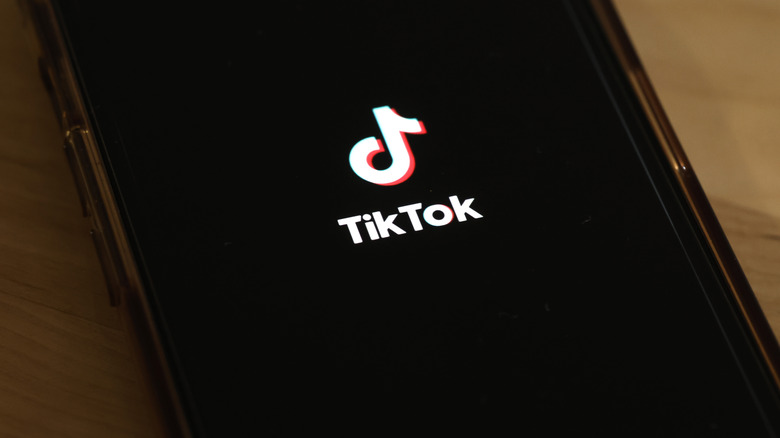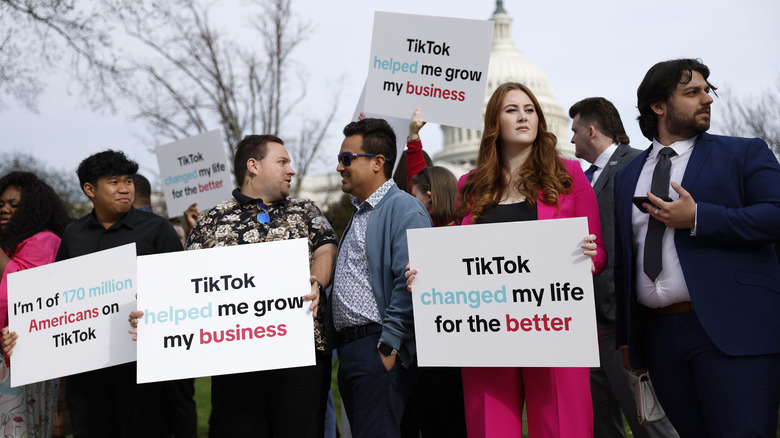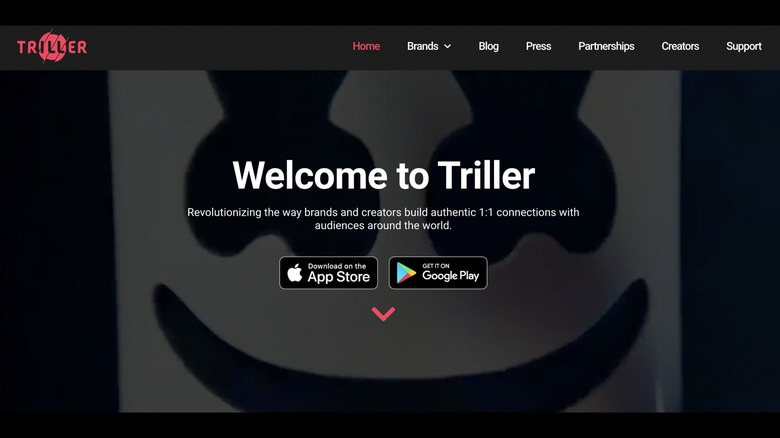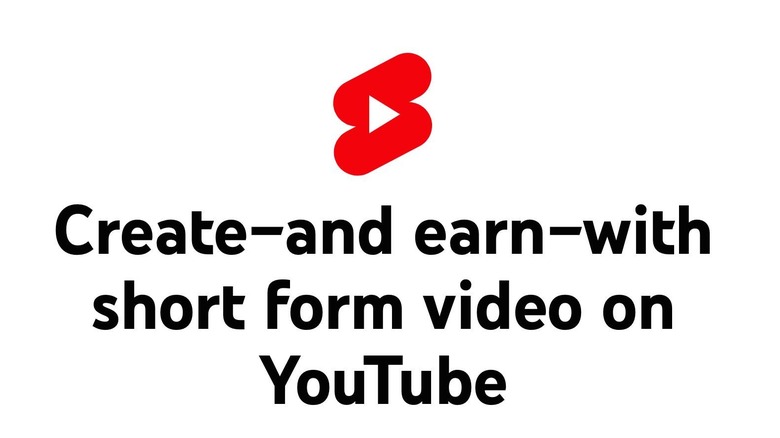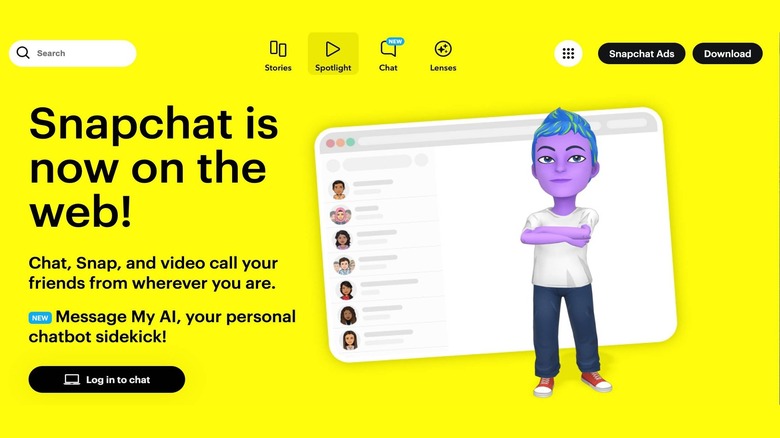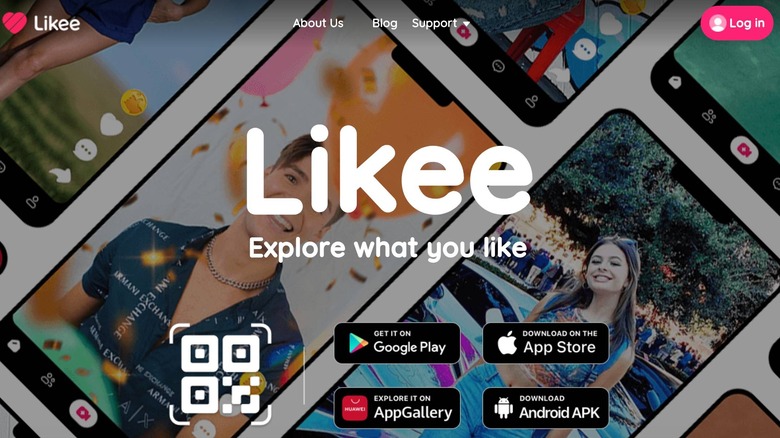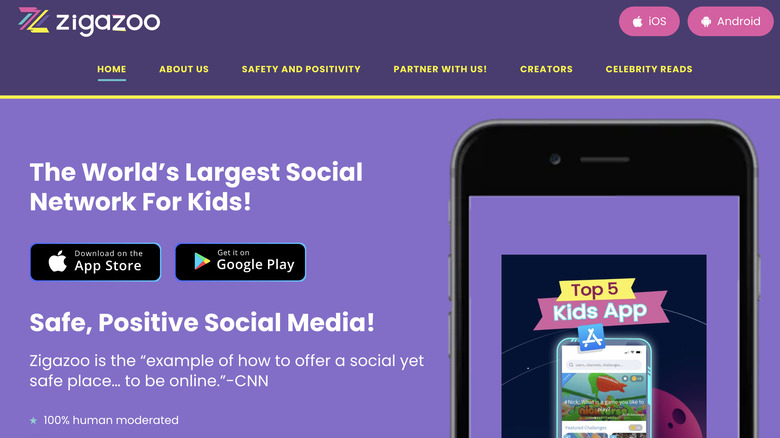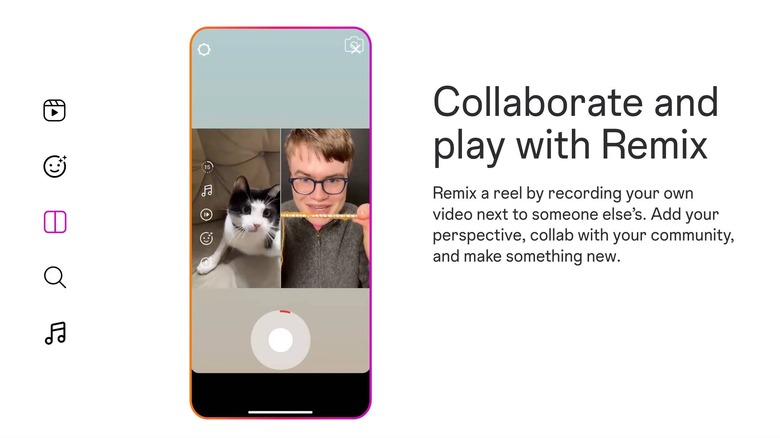6 Of The Best TikTok Alternatives (In Case It Gets Banned)
TikTok might just be the most popular social media app at the moment. From dance videos to movie reviews to vlogs, people use the app for many purposes. In fact, data suggests it has approximately 150 million users in the U.S. alone. And the government has been keen on banning it for a while.
The United States House of Representatives recently passed a bill threatening the app unless its owner, ByteDance, manages to sell it off to avoid perceived influences by the Chinese Communist Party. The country has been through this song and dance before, with politicians openly stating how they want to get rid of the social media platform. It remains to be seen if this new bill has legs — TikTok could stick around for a while or it may soon no longer be accessible to Americans. Either way, it may be a good time to start looking toward alternatives. And no, this doesn't mean going back to Facebook and poking your friends. Many TikTok alternatives on the app store are relatively similar, and if the app goes away, they may be a viable place for users to congregate.
TikTok could easily still be around for some time, but let's prepare for the worst and see what else is out there. Even if the bill never becomes law, it may not be bad for budding influencers out there to check out other services they could use to build a following. We chose these apps based on user reviews, compatibility with platforms, and other important factors.
The U.S. government has tried to ban TikTok before
Before getting into our list of alternatives, it's important to note the government has attempted to ban TikTok (or get ByteDance to divest) for quite some time now. The Donald Trump administration tried banning TikTok in 2020, with the former president signing an executive order to eliminate the platform from app stores in the U.S. However, President Trump eventually reversed his position and the order, which also faced challenges in federal court. Joe Biden's administration also warned of a possible TikTok ban when he entered the White House unless ByteDance divested. While the app remains available to everyday American citizens, President Biden signed a bill banning it on government-issued devices.
The app faced further scrutiny when the governor of Montana signed a bill to ban the platform from the state in 2023. However, that was blocked by a federal judge, who ruled it infringed on Americans' freedom of speech, as protected by the First Amendment, and Montanans can still download the app like normal. Any more bills to try to ban TikTok, including the one that recently passed the House of Representatives, would likely face similar challenges in court.
Any TikTok ban presents numerous legal, moral, and political concerns. There are even worries such a bill would grant the government overarching powers to ban other apps, even American-owned ones, just because someone in power doesn't like it. Regardless, it's clear TikTok has enemies, to say the least.
Triller
For the uninitiated, TikTok may seem like an app where people upload videos of themselves dancing to hit pop songs. While it's branched out from that niche, Triller has remained firmly rooted in its music-based origins. Launched in 2015, the app's actually older than TikTok, and originally started as a video editing tool. Over time, it adopted a social media feature where people can still use those editing capabilities to create videos of themselves with whatever music they want.
Anyone super into new music will be happy to hear Triller is compatible with outside libraries and catalogs, even from Apple Music or Spotify. This already provides it with one major advantage over TikTok where users can only use music within the platform's cache. That's become a lot more sparse since early in 2024 when TikTok failed to reach an agreement with Universal Music Group, preventing songs from huge artists like Taylor Swift and Ariana Grande from being used by content creators.
Another big difference Triller has with TikTok rests in how users go about editing. TikTok users can decide what effects, sounds, or text to incorporate into a given video. Triller is more AI-driven, with limited manual editing tools. Still, anyone who isn't as confident editing may find that to be more of a perk. Current users don't seem to mind, as Triller presently has a rating of 4.6 out of 5 on the App Store. The social media platform has already attracted plenty of big names, including musicians like Alicia Keys and TikTok stars like Charli D'Amelio.
YouTube Shorts
YouTube Shorts is pretty much YouTube's answer to TikTok. It lets creators upload vertical videos under a minute long that don't require nearly as much editing as an hour-long essay. YouTube Shorts saw worldwide expansion in 2021 to take on TikTok in a big way. It's more casual than the website's typical video experience, allowing users to consume content by scrolling through videos of people filming themselves on the go, using music straight from YouTube itself. And people who only want to post short-form content can still monetize just like big YouTube creators.
One major advantage YouTube Shorts has over other TikTok alternatives is that it's part of a platform people are already familiar with and likely use often anyway. For creators looking to take the leap into another frontier, it definitely seems to be worth it for some. Tech reviewer Mark Ellis praised YouTube Shorts in a 2022 review: "I started my YouTube Shorts journey three weeks ago. Since then, I've published 14 short-form vertical videos which have collectively generated over 41,000 views and brought in 67 new subscribers. Why was I avoiding making content of this kind for so long?"
It even seems like TikToks can be repurposed into videos on YouTube Shorts and vice versa although it's worth mentioning that only videos longer than one minute can make money off TikTok. YouTube Shorts caps video length to 60 seconds, so content creators will have to decide which platform they want to try to make money on. And if YouTube Shorts annoy you, there's an easy way to remove it from your YouTube homepage.
Snapchat
Like YouTube, Snapchat has been around for a while and already has a reputation of its very own. It's mostly known for allowing friends to communicate with one another by sending pictures and videos with text or doodles added to them. These "snaps" then disappear after a preset amount of time, but there's far more to this app than meets the eye. Not all content disappears after a while, and there are plenty of stories and shows to follow that easily give TikTok a run for its money.
Snapchat also has Spotlight and Stories pages that allow users to check out other people's videos, even if they're not necessarily following them. There are even premium videos often featuring celebrities that pretty much turn Snapchat into a streaming service of its own. Addison Rae, who initially blew up on TikTok, has one such Snapchat show called "Addison Rae Goes Home," where the social media personality provides a glimpse into her home life.
These bonus shows are just one of many hidden Snapchat features that can change how you use the app. And if we may engage in some shameless self-promotion, SlashGear has a Snapchat page where you can watch all kinds of cool videos about the latest in cars and technology.
Likee
At time of writing, Likee boasts 100 million worldwide users who can upload short videos or even livestream to reach their audience. The main driving force behind the app is its integration of 4D editing techniques, allowing content creators to alter their background or change their physical characteristics in a video, such as hair color. Honestly, Likee is about as close to TikTok as one's going to get, even down to the platform getting banned in India (where TikTok is also banned).
There have been privacy concerns surrounding Likee, and the app advertises itself as being recommended for anyone 16 and older. Naturally, it's up to parents to decide if any young children should be on social media of any kind, but as far as creators, Likee is very similar to TikTok, even in terms of basic layout. Creators can even monetize their accounts by earning crowns or receiving gifts from other users through live streams.
Seeing as Likee is owned by a Singaporean company, there's a chance legislation banning TikTok in the United States could also get rid of it. For the time being, it's still around in the States and doesn't have much of a learning curve if someone's already familiar with how to post to TikTok.
Zigazoo
Outside of any privacy issues with Likee (or most other social media apps in general), it's understandable for parents to be wary about what their kids are watching on their phones or tablets. Even worse, there could be concerns about who could message children through such an app. That's why some parents may want to wean their youngsters off TikTok and get them started on Zigazoo, which was specifically designed to be safe for kids while promoting healthy, fun, and educational challenges for them to take part in.
Zigazoo co-founder Zak Ringelstein spoke with CNN about how he didn't want kids to zone out on their phones or see things they shouldn't: "We recognized that not only was there a lot of content that we would never select for our child to watch but that kids can and want to do more. They want to be with friends. They want to create, build, and interact."
The app regularly hosts challenges, often created by museums or zoos, to get kids actually up and working on something rather than watching other creators have all the fun.
There's also no way to message other users through the app, so parents don't have to worry about their children talking to people they don't know. Parents actually have quite a bit of control through the app; they can even decide if the videos their kids create can be public or set to private. Zigazoo is mostly recommended for kids between the ages of 3 and 12, and it's the rare social media platform where children can genuinely feel safe.
Instagram Reels
Instagram was mostly known for being a place to upload photos of friends, family, and meals. Over time, seemingly in a bid to compete with TikTok and other short-form video platforms, the app introduced Instagram Reels. As one can surmise, this feature allows users to upload videos up to 90 seconds in length. Just like TikTok, the service allows people to edit their videos or incorporate music to really make them pop. While it may come across as a copycat move, it clearly worked in favor of Instagram, as The Financial Times reports how Instagram downloads increased by 20% in 2023. In the same year, TikTok downloads only grew by 4%.
A big reason for that jump could be attributed to Instagram taking on more TikTok-esque features, which would be somewhat funny because Reels was widely panned when it launched. In a review of Reels for Digital Trends, Cristina Alexander lamented, "The TikTok-ification of Instagram takes away the type of content people love most about the platform: photos from friends and family, as well as content based on their interests. And it's something I'm just about fed up with." That was back in 2022, and a lot of people appear to have come around since then.
Incorporating Reels made Instagram a one-stop-shop of sorts. People can still find posts made by friends to stay in touch with them while also scrolling through Reels to see what all their favorite influencers are up to. It's a viable alternative in the event TikTok gets banned, but there are also numerous other options to keep people glued to their phones for some time.
